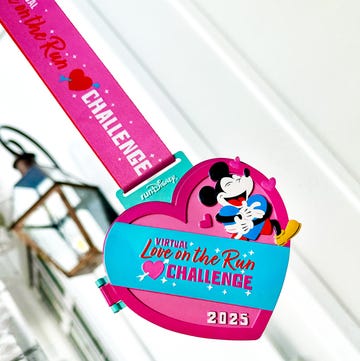After Health - Injuries, Nick Symmonds felt compelled to send out a tweet.
"Daily I take 500mg vitamin C, 2000 IU vitamin D, and a One-A-Day multivitamin. This is all that I take. It's all I have ever taken," the two-time Olympic 800-meter runner wrote.
Not exactly a high-tech regimen in a time when a consumer can enter a GNC store and purchase over-the-counter products banned by the World Anti-Doping Agency. The reason for Symmonds’ tweet?
“In this era, it is almost assumed by the general public that every pro athlete is on something,” Symmonds wrote in an email. “If it’s not a banned substance, then it is playing in the grey area with inhalers, synthetic thyroid, etc. I don't have any TUEs [therapeutic use exemptions] on file, and I feel that, for me personally, I don't want to mess around with that stuff.
“As far as my supplements are concerned, I get them from a reputable supplier and am not worried about a tainted supply.”
A TUE is a form filed by an athlete to seek approval to use, for medical reasons, a substance on the banned list. Thus at the Olympics the percentage of athletes cleared to use asthma medications – which could provide a performance boost – is several times higher than in the general population.
Symmonds is vigilant in this area. His Nike-sponsored team, the Oregon Track Club, often has supplements tested to make sure they contain no banned substances.
Unfortunately, there are a lot of athletes who aren’t as careful. Last weekend, U.S. sprinter Tyson Gay, a two-time world champion, and Jamaican sprinters Asafa Powell, a former 100-meter world record holder, and Sherone Simpson, an Olympic relay gold medalist, acknowledged they had tested positive for banned substances.
Gay didn’t disclose the substance – some European outlets have reported it was a stimulant – but blamed the test on someone “close” to him who presumably supplied a supplement that purportedly was clean. Powell and Simpson tested positive for a stimulant they said was contained in supplements provided by their personal trainer.
Positive drug tests attributed to supplements have always been tricky. According to WADA rules, athletes are bound by strict liability – they are responsible for any substance found in their body. However, the agency has lessened penalties for violators who convinced authorities the transgression was unintentional.
On the other hand, some guilty of doping have tried to invoke the unintentional violation defense. Gay, Powell and Simpson are experienced athletes who are undoubtedly aware that supplements often contain banned substances that are not listed ingredients.
“When I hear an athlete say, ‘My trainer told me to take these supplements,’ I literally laugh out loud,” Symmonds wrote. “There is so much wrong with this statement it crosses into the absurd. First of all, how can your call yourself a professional if you are just blindly taking something that someone told you to take?
“Second, it is the athlete's responsibility to make sure they surround themselves with morally upstanding people and to ensure that they know exactly what is going into their body. The ‘trainer’ excuse sounds like someone is looking for a scapegoat to pin something on.”
Prominent drug case lawyer Howard Jacobs, whose landmark cases include an award from a company that made multivitamins that caused a positive test and two-year suspension for swimmer Kicker Vencill, sympathizes with athletes, who feel that they need to take supplements because their competitors do so.
“There are a lot of substances that are mis-described or confusingly labeled, which makes it hard for athletes,” said Jacobs, who declined to say if he’s representing any athletes who have recently tested positive. “The supplement issue is a difficult one. I don’t know how you go about assuring yourself that what you’re taking is safe. That has been the case and continues to be the case.”
The U.S. Anti-Doping Agency website practically begs athletes not to use supplements. The site contains print and video cautions, as well as reminders that, unlike prescription medications, supplements are not regulated by the Food and Drug Administration.
USADA urges abstinence: “The only way for an athlete to completely eliminate the risks associated with dietary supplements is to avoid dietary supplement use all together,” its site reads.
For whatever reason, sprinters seem to greatly outnumber distance runners among those positive in the supplement category. Earlier this season, Jamaica’s Veronica Campbell-Brown, a two-time Olympic 200 champion, tested positive for a diuretic that she said came from using a cream to treat a muscle injury.
There have been scores of sprinters sanctioned for such offenses. Distance runners are rare. Two that come to mind: American marathoner Jeff Scuffins had a three-month ban in 1989 for what amounted to inadvertent stimulant use due to a medication; Russian middle-distance runner Anna Alminova had a similar case in 2010.
Health - Injuries?
“My first thought is that sprinters typically make considerably more money than distance runners and that the money, as is often the case, motivates people to using banned substances,” Symmonds wrote.
“My second thought is that distance runners tend to be hyperaware of what we put into our bodies. Due to the rigorous nature of our training, we are constantly monitoring our nutrition, blood, supplements, etc.”
As much as WADA and USADA would like the issue to disappear, the use of supplements among professional track athletes is not going away. Running fans should expect more news like that of last weekend about failed drug tests from the nebulous world of supplements.













